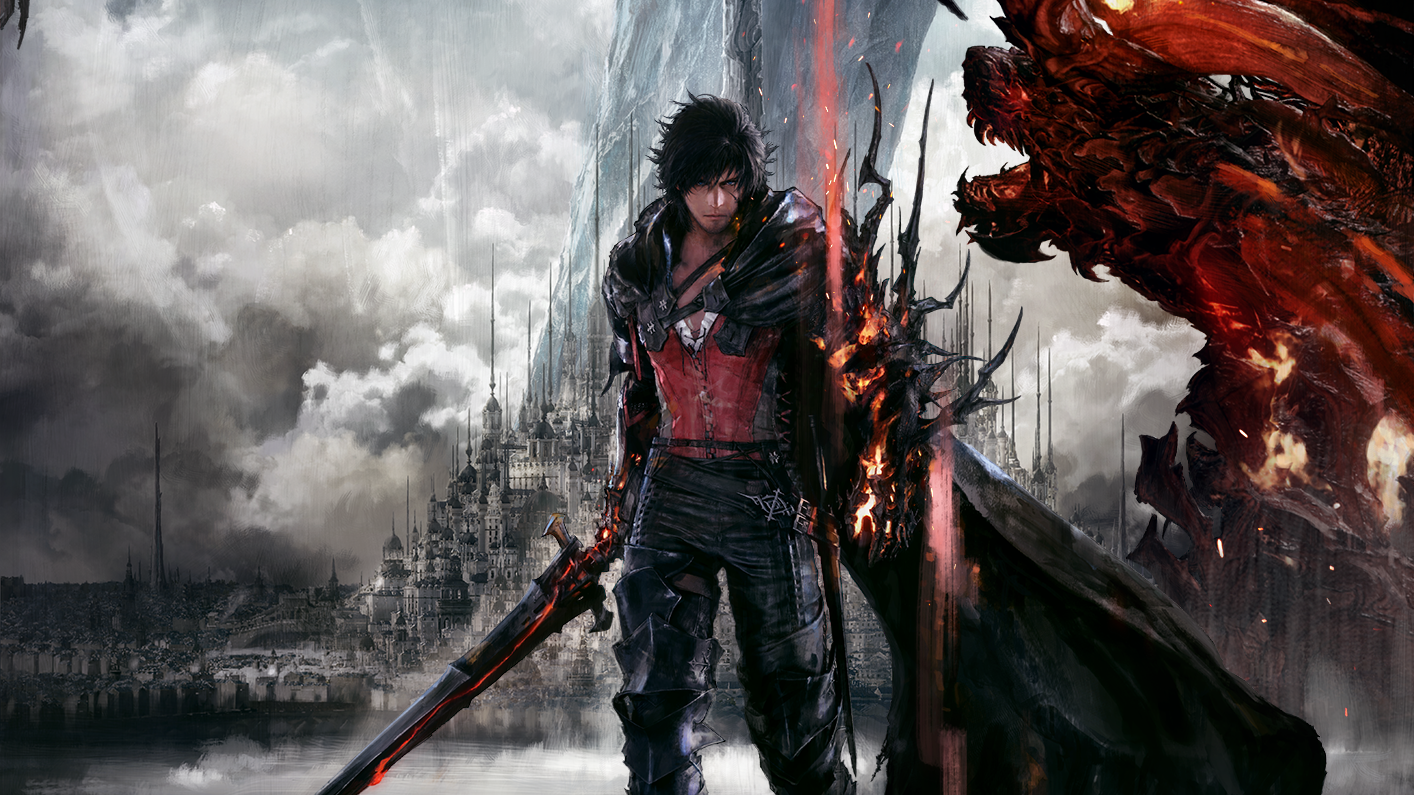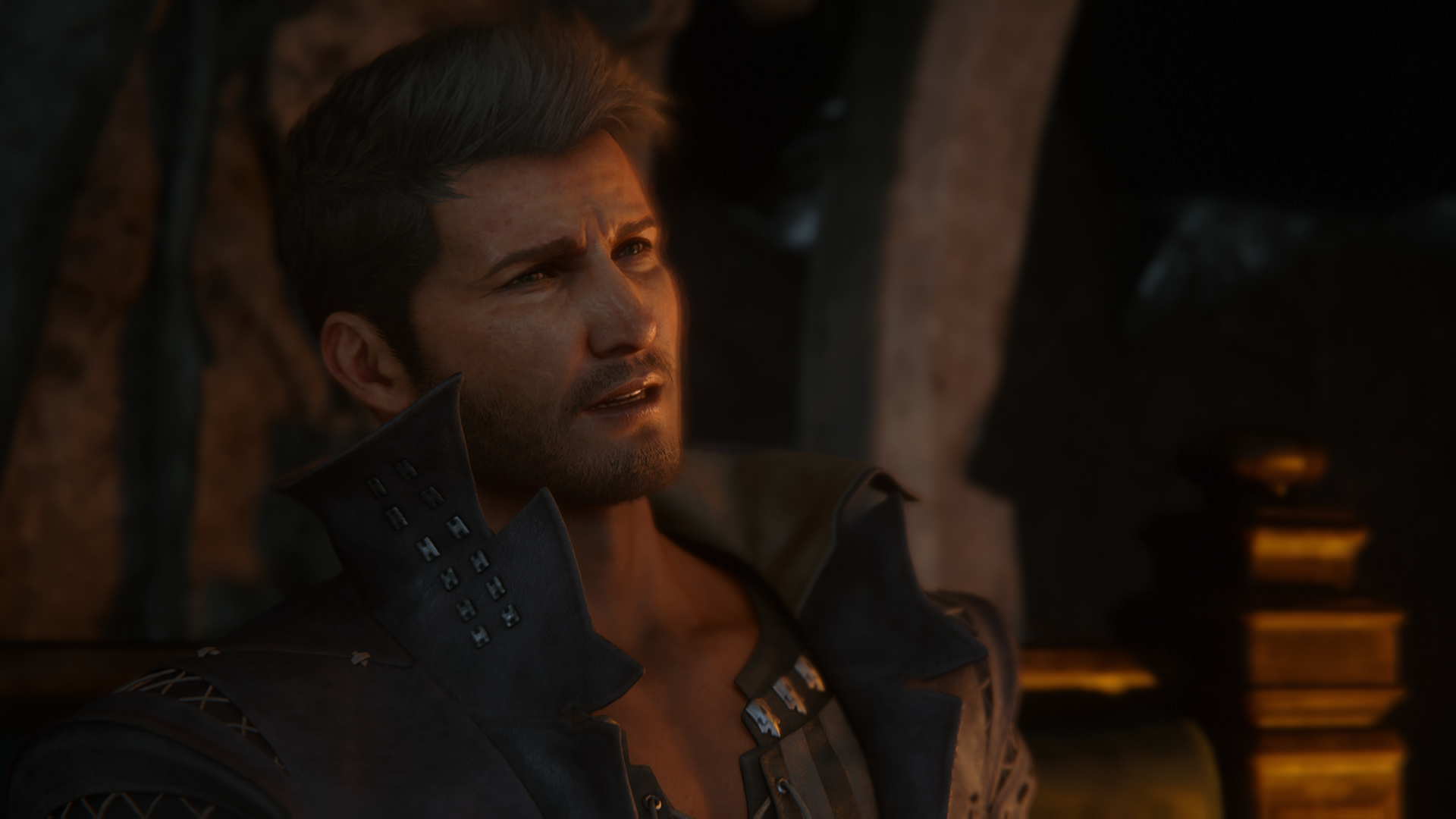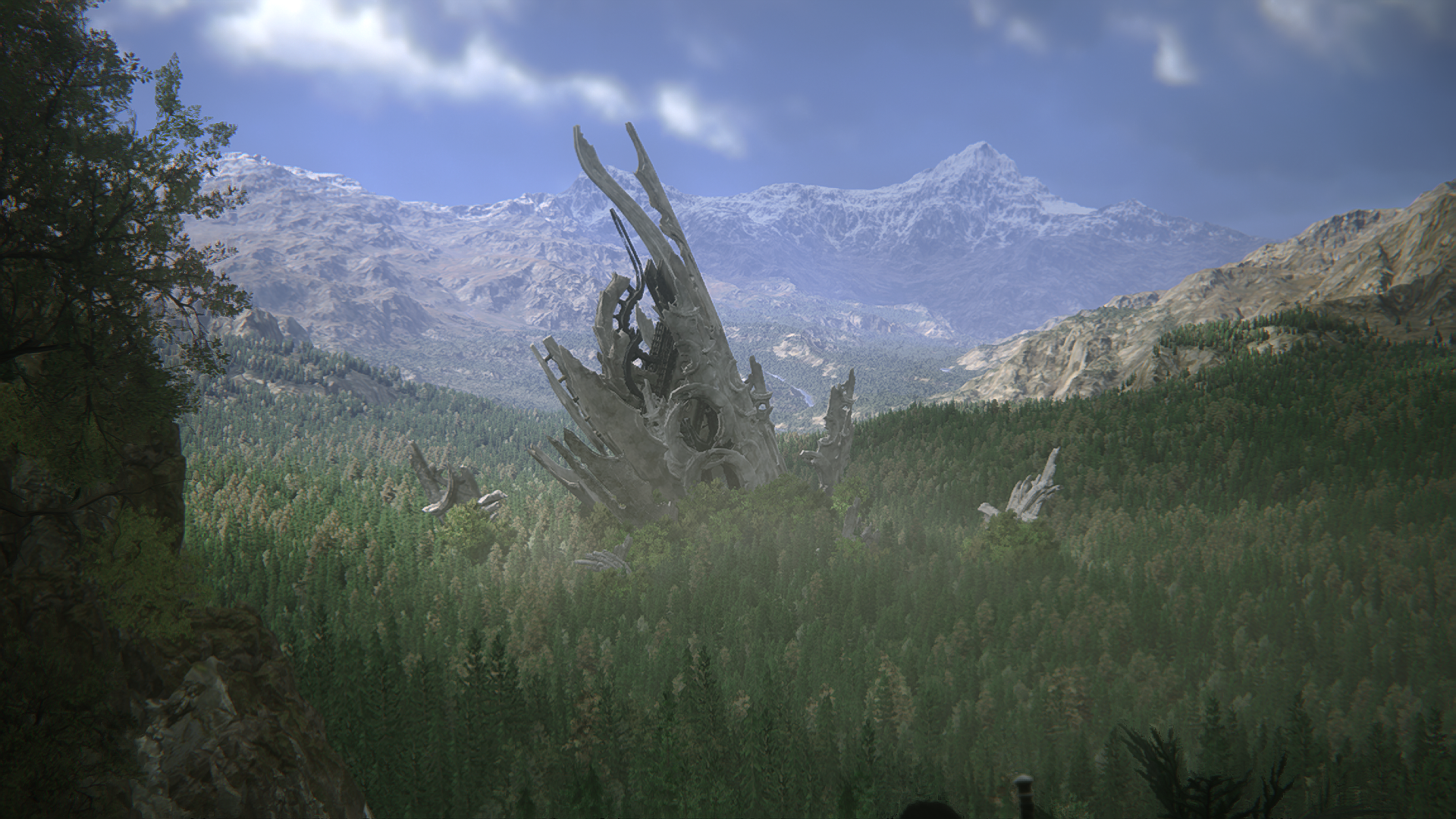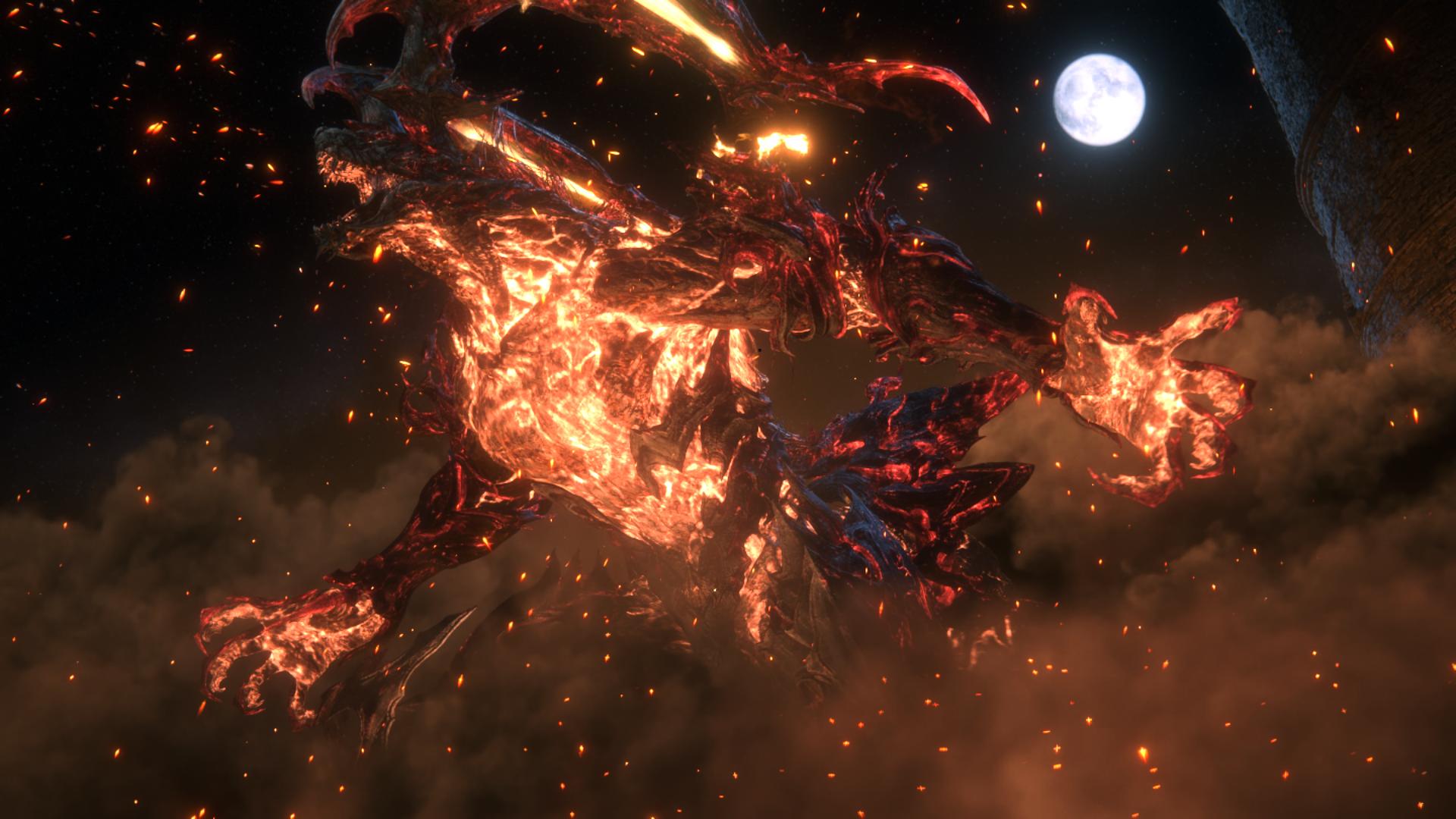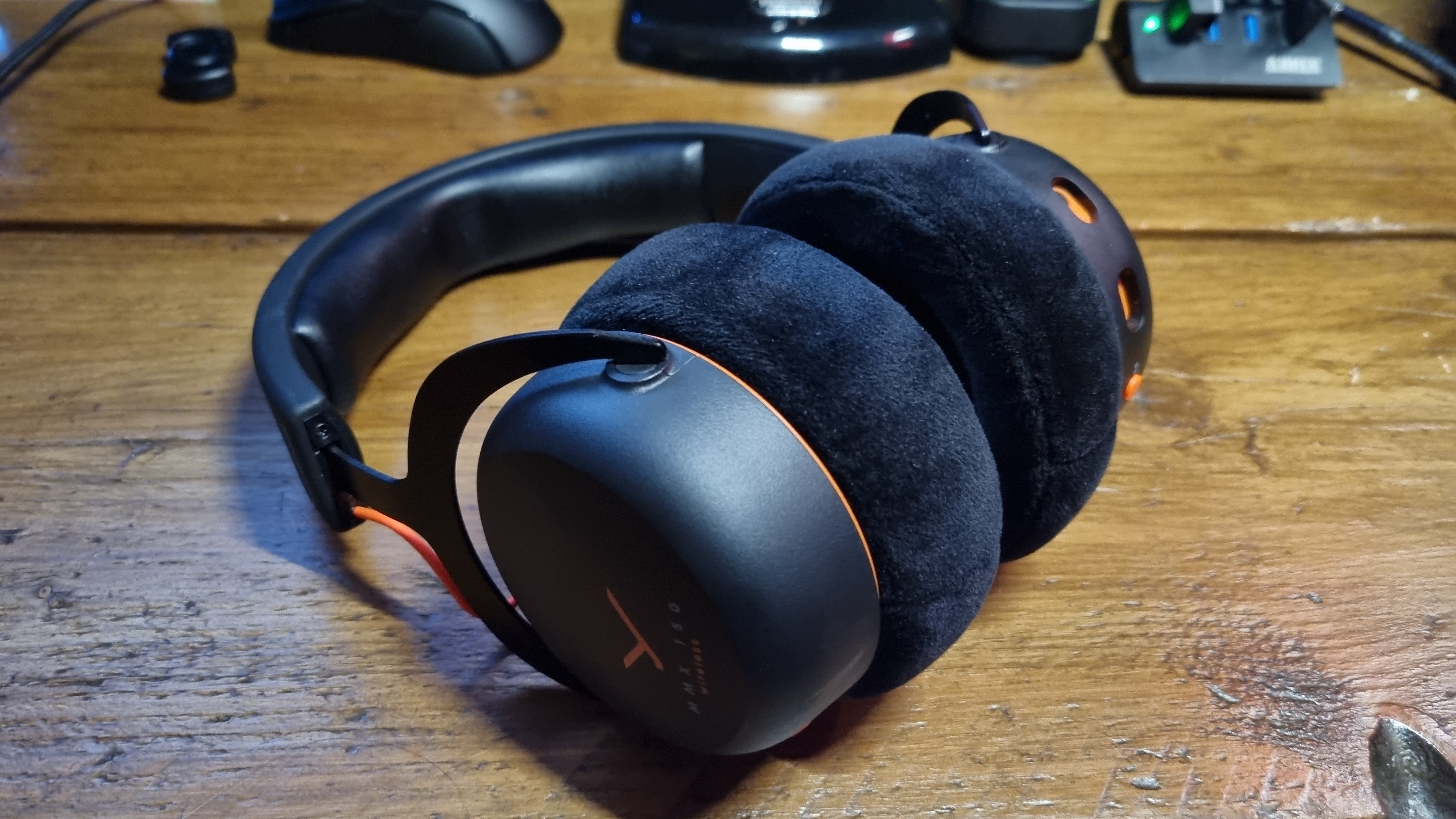Our Verdict
Perhaps a bit too divergent from the Final Fantasy formula, but rich characters and spectacular combat still make it an impressive sequel.
PC Gamer's got your back
What is it? An action-RPG in the long-running Final Fantasy series, featuring punch-ups between gods.
Release date September 17, 2024
Expect to pay $50/£45
Developer Square Enix
Publisher Square Enix
Reviewed on Intel(R) Core(TM) i7-7700 CPU @ 3.60GHz, 16GB Ram, Intel(r) HD Graphics 630
Steam Deck Unsupported
Link Official site
When you picture what a Final Fantasy game is, what does your mind jump first to? Shiny, pretty landscapes? Even prettier hair? Cute little creatures? Final Fantasy 16 really doesn't fit that mould. With high-stakes action combat and a much darker tone, FF16 flips all of your expectations upside down.
The world of Valisthea feels as grubby as Game of Thrones. Both have medieval(-ish) worlds full of warring nobles vying for power with a cruel approach to their citizen’s welfare, and both face impending doom—in Final Fantasy 16’s case, a blight that is draining life and magic from the world, slowly consuming it and leaving it barren.
Those who can use magic without the aid of crystals are feared and marked as "Bearers"—forced to work as slaves and perform menial tasks such as drying laundry with their gifts. However a select few are chosen as "Dominants", and can channel transformative, god-like beings known as Eikons in the form of classic series summons such as Shiva and Titan. Of course, this being a Final Fantasy game, there is another, greater threat waiting in the wings to introduce themselves.
Brooding protagonist Clive must navigate it all to uncover what happened to his younger brother—the Dominant of the fire bird Phoenix—all those years ago, face his past, and see where that takes his future. After a chance meeting he sets about working to free Bearers and master his own Eikon gifts. It makes for a compelling tale of revenge and personal growth in the face of death and hopelessness, with actor Ben Starr doing an excellent job of performing Clive’s bitter grumbles.
Even better is Ralph Innesson, who steals the show as Cid, the Dominant of Ramuh. The two often enjoy some gravelly banter while cutting their way through dangerous wildlife and enemy soldiers, their friendship turning into a bit of a bromance that carries you through the first half of the game. You also encounter plenty of memorable NPCs on your journey, such as Charon the shrewd, an elderly merchant who delights in insulting you, and Gav, a scout with a heart of gold, a low tolerance for alcohol, and a lovely scouse accent.
While most characters enjoy comparable depth, the starring women do feel wasted by comparison to the men, and fall into tired archetypes. There’s the ice queen mother of Clive and Joshua who only cares about pure bloodlines, the powerful Benedicta—Dominant of Garuda—who just gets to die to compel a man's plot along, and finally Jill—the Dominant of Shiva and childhood friend of Clive and Joshua—who despite all her power largely plays the role of damsel in distress. In a less character-driven game it might not be so noticeable, but when the male characters are all enjoying fully-formed, complex existences, it feels like a missed opportunity that the female characters are so half-baked.
Still, as an ensemble it really works, the developing camaraderie of Clive and his ragtag band of outcasts giving the game's story a compelling emotional throughline. I often found myself completing menial sidequests purely because they'd give me opportunities to learn more about each character and deepen the bonds between them.
Keep up to date with the most important stories and the best deals, as picked by the PC Gamer team.
While the lore of Valisthea helps ground it and make it feel like a real, functioning place, it can also seem empty. The map is made up of several zones, and you’ll spend most of the game hopping to and fro as you sally out from your central hideout. Exploration is limited and there isn’t much incentive to stray off the beaten path. Rewards for doing so tend to be minimal, and while there are sidequests that include some of those small character moments, in terms of what you're actually doing they're largely just glorified fetch quests. It's also missing a lot of traditional Final Fantasy trappings that normally help add colour—Chocobos and Moogles do exist (though the latter only gets one showing) but there are no beguiling minigames to distract you, and the series references that are present feel so subtle only dedicated fans will spot them.
FF16 also fully drops the turn-based systems of previous entries in the series, such as the FF7 remakes, and goes for completely real-time action combat. Even compared to 15, which gestured in a similar direction, it's much closer to a full-on brawler than a typical JRPG. You're able to use a combo of melee and ranged attacks, as well as three sets of powerful Eikon abilities that you can mix and match to your liking. Closing the gap with a fiery dash and following it up with a winged uppercut, or taking out crowds with a perfectly placed lightning blast is brilliantly satisfying. Mechanically it might not feel like a traditional Final Fantasy, but its visual flourishes feel very in-keeping, with plumes of flames and dark slices following your sword strikes.
You’ll spend most of the game cutting your way through basic enemies and the odd tougher monster, but it's the boss battles with the other Eikons where the combat really shines. Each one changes the landscape and bombards you with attacks at a gigantic scale, eventually transforming into what is effectively a kaiju battle between gods.
The grand scale of them has me sweating up my controller and swearing to myself in awe as dramatic music swells and Clive is dodging mountain-sized hands or having a shoot out in space. FF14 players may do a bit of a double-take at some reused fight mechanics, but that shouldn't come as much of a surprise given that the two development teams shared a lot of staff. Masayoshi Soken is also responsible for the music of both games, leading to an impressive mix of classic Final Fantasy themes mixed in with rock and pulsing electronica.
If action isn’t your thing there is a story-focused difficulty mode and accessories you can equip that will help Clive dodge or perform complicated combos with ease. However if you’re looking for a challenge, you’ll need to complete the game once to unlock the much tougher Final Fantasy mode… or just look out for mods to shortcut the process.
I played this PC port on a rig that sits at the lower end of the game’s settings, so I did face stuttering in some cutscenes and the edges of finer details looking a bit jagged. While I did have to drop my settings to mid and occasionally even to low in some of the more graphically intense areas (even those with high-end specs will find their PCs pushed hard), crucially the action didn’t suffer and inputs remained smooth even when looking a bit messy.
Playing through I felt myself constantly torn between loving the pace of combat and a lot of the story beats, and feeling disappointed that there isn’t much else to it—no hidden secrets and exploration like other Final Fantasy games. Compared to the likes of FF7: Remake, its grand adventure does feel like it's missing something that would tip it over into truly epic. That hasn't stopped it earning a place in my personal top 10 of the series, however. It’s not perfect, but the story it tells combined with the soundtrack and combat still make it a standout entry—a worthy sequel for long-time fans, and an accessible way in for newcomers.
Perhaps a bit too divergent from the Final Fantasy formula, but rich characters and spectacular combat still make it an impressive sequel.
